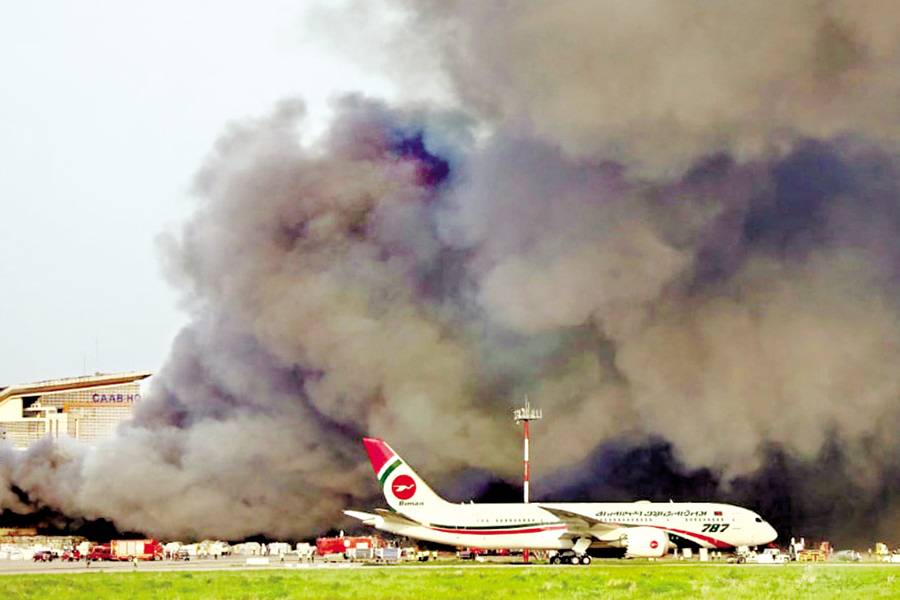Electrical short circuit triggered cargo village fire at Dhaka airport, probe finds

Published :
Updated :

A devastating fire that tore through the cargo village of Dhaka’s Hazrat Shahjalal International Airport last month was caused by an electrical short circuit, an official investigation has concluded.
The report which exposing years of neglect, dangerous storage practices and the absence of basic fire-safety systems at one of the country’s most sensitive facilities, was handed to the chief adviser on Tuesday by disaster and relief adviser Faruq-e-Azam, on Tuesday.
It paints a grim picture of systemic mismanagement inside the import cargo complex, where the 18 October blaze erupted.
The findings were publicly outlined at a briefing at the Foreign Service Academy by the chief adviser’s press secretary, Shafiqul Alam.
According to the report, the fire started due to “electrical arcing and short circuiting” in the north-west corner of an extended portion of the courier shed—specifically in the area between several iron cages used by courier agencies.
The shedding area, investigators found, had none of the most rudimentary fire-prevention measures: no fire alarms, no smoke detectors, no sprinklers and not a single operational hydrant.
Inside the shed, 48 small iron-mesh enclosures functioned as offices for different courier companies. The committee found these makeshift offices were surrounded by dangerous piles of highly flammable goods stored without oversight or regulatory compliance.
“With total disregard for rules and safety, flammable materials such as fabric rolls wrapped in polythene, chemicals, cans of compressed perfume and body spray, electronic items, batteries, and raw materials for pharmaceuticals had been stacked haphazardly,” the report said.
The investigation drew on both oral and written statements from 97 witnesses. It also incorporated assessments from a Turkish expert team, specialists from Bangladesh University of Engineering and Technology (BUET), fire service experts and CID forensic analysts—all of whom confirmed the cause as accidental, not deliberate. “This was not an act of sabotage,” Shafiqul Alam said.
Perhaps most startling is the committee’s revelation that the cargo village has suffered seven major fires since 2013—many of which were never publicly reported. Despite this history, officials found that the Civil Aviation Authority of Bangladesh (CAAB) still had no institutional fire-fighting capability of its own. The report describes the airport’s preparedness as “alarmingly inadequate”, noting that the magnitude of risk inside the cargo facility had long been known but never addressed.
Investigators argue that merely patching up the existing system will not be enough. Among their key recommendations is the creation of an independent airport operations authority to take charge of maintenance, safety and day-to-day management. Under this model, CAAB would serve only as the regulator, not the operator—mirroring arrangements used in several major international airports.
The findings are likely to intensify calls for sweeping reform of Bangladesh’s aviation infrastructure, which has struggled with capacity shortfalls, regulatory weakness and repeated safety lapses.


 For all latest news, follow The Financial Express Google News channel.
For all latest news, follow The Financial Express Google News channel.